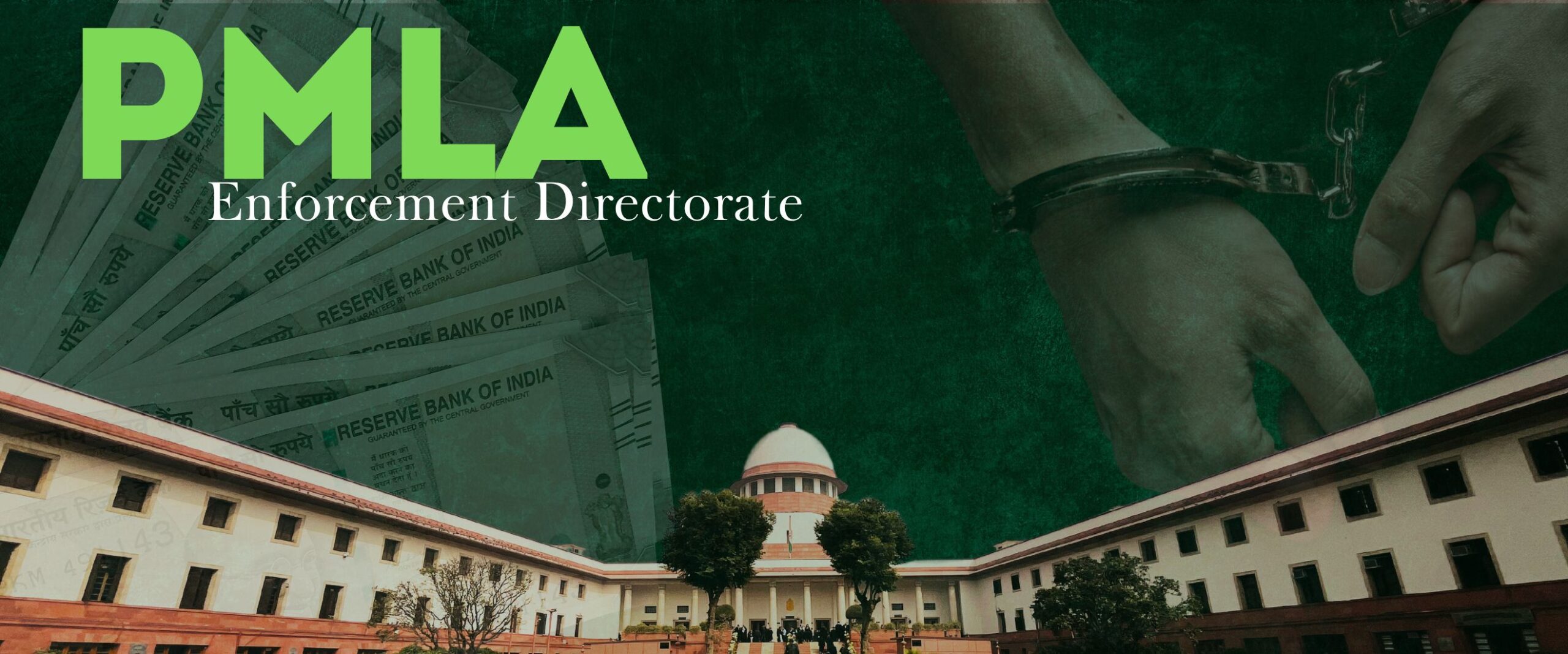Analysis
The “need and necessity” of arrest
The Court’s decision to refer an issue around the legality of Kejriwal’s arrest to a larger bench could widen the scope of judicial review.

On 12 July, the Supreme Court granted interim bail to Delhi Chief Minister Arvind Kejriwal in the Delhi Liquor Policy matter. The bail order came in a plea where Kejriwal had challenged his arrest by the Enforcement Directorate.
The Court didn’t decide on the legality of the arrest, and instead referred the issue to a larger bench. A five-judge bench will be constituted to decide if investigating agencies have to prove “need and necessity” of the arrest under the Prevention of Money Laundering Act (PMLA).
“Need and necessity” is not a phrase used in the PMLA. An arrest under Section 19 requires the investigating officer to have sufficient “material in possession” that gives them “reason to believe” that a person is “guilty of an offence.” In Vijay Madanlal Choudhary v Union of India (2022), the Court had said these requirements were “stringent safeguards” to prevent arbitrary arrests. Kejriwal brought “need and necessity” of arrest into the debate when claiming that the ED had no reason to arrest him.
The ED argued that the Court could not scrutinise an arrest in an ongoing investigation. The Court disagreed, noting that the subjective opinion of an investigating officer was fair game for judicial review. In the judgement, Justice Sanjiv Khanna relied on a string of cases where the Court has said that an arrest cannot be “arbitrary” or as per the “whims and fancies” of the arresting officer.
This year, there have been a few cases where the Court has put fetters on the ED’s power to arrest. In Prabir Purkayastha v State (NCT of Delhi) (2024), the agency had argued that determining the legality of arrest is immaterial once a remand order is passed. Rejecting the contention, the Court provided relief to the chief editor of a digital outlet stating that his arrest did not satisfy the parameters under Section 19.
In Tarsem Lal v Directorate of Enforcement (2024), a Division Bench of the Court held that a person cannot be arrested under Section 19 if a Special Court has taken cognisance of the case. The rationale was that if the ED had no reason to arrest when an investigation was ongoing, there would be no reason to arrest after cognisance was taken.
Coming to the “need and necessity” condition, which was argued by Kejriwal’s lawyers, the bench acknowledged that it had to be considered as the Supreme Court had recognised it in previous decisions. But the nitty-gritties still needed to be clarified.
That’s why the bench framed and referred a couple of issues to a larger bench: (a) whether an arrest can be challenged only on the distinct ground of “need and necessity” or whether it has to be subject to other conditions under Section 19; and (b) whether “need and necessity” will be decided on the basis of case facts or whether it need only satisfy formal parameters such as the ones laid down in Section 41 of the Criminal Procedure Code (committing further offences, tampering with evidence, influencing witnesses etc.)
If the larger bench holds in the affirmative on the first prong of point (b), the Court has already seen a trailer of the arguments that could play out later. Kejriwal questioned the need for his arrest by pointing out its timing—just before the Model Code of Conduct for the General Election kicked in. The ED argued that Kejriwal’s repeated refusal to present himself justified the “need and necessity” of his arrest for custodial interrogation.
The Court’s referral of the interpretive issues to a larger bench indicates its openness to expand the scope of judicial review of the central agencies’ power of arrest. This decision, along with the ones in Prabir Purkayastha and Tarsem Lal, could be read as softening the implications of its decision in Vijay Madanlal Choudhary, which upheld—and even endorsed—the Section 19 safeguards. We are wary of overstatement while divining patterns from court decisions. But, for now, it’s safe to say that the ED doesn’t have it as easy as it is used to.
— Advay Vora, Assistant Editor
This article was first featured in SCO’s Weekly newsletter. Sign up now!